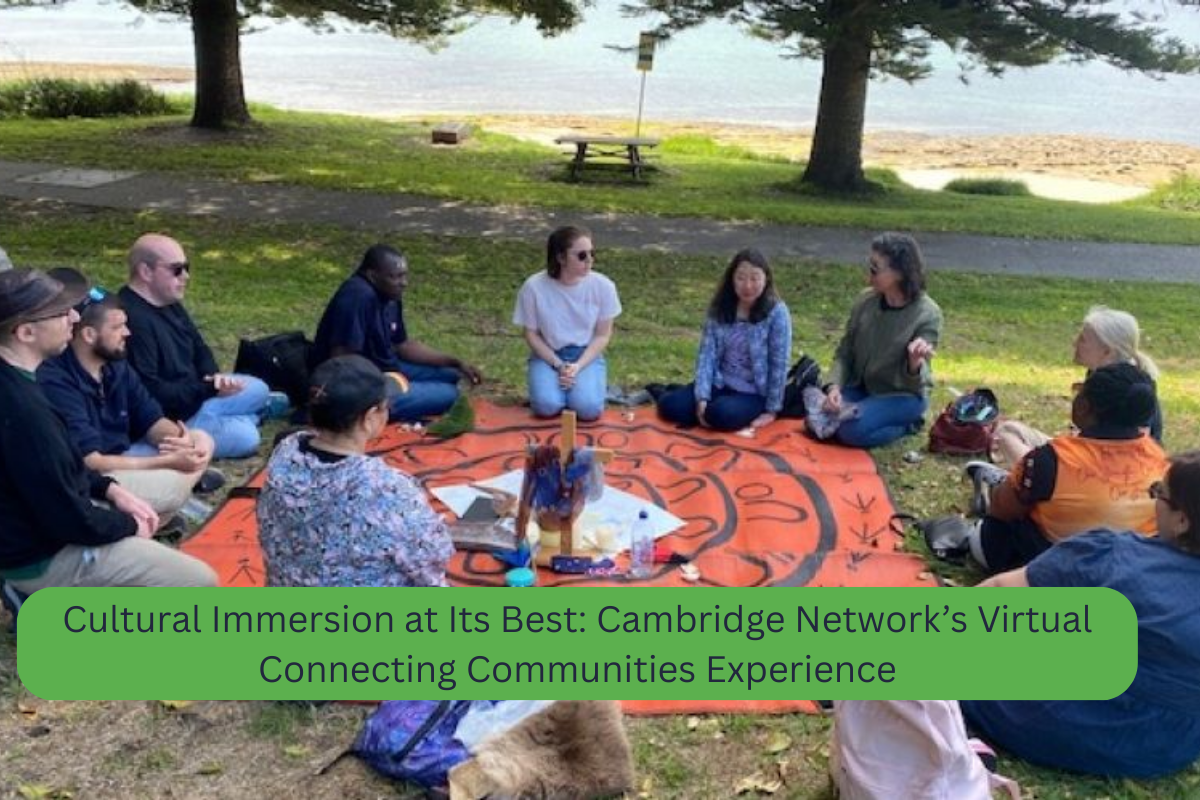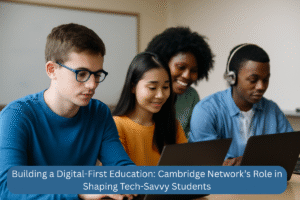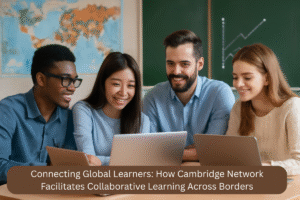In today’s globalized world, cultural immersion is a key component of a well-rounded education. Cambridge Network is leading the way in providing students with transformative virtual cultural experiences that connect them with diverse communities across the world. Through its Virtual Connecting Communities Experience, students gain exposure to different cultures, traditions, and perspectives—all while learning in an engaging and inclusive virtual environment.
What is the Virtual Connecting Communities Experience?
Cambridge Network’s Virtual Connecting Communities Experience is a digital platform designed to bridge the gap between students and global communities. It allows students to connect with peers, educators, and mentors from different cultures, fostering an environment of cross-cultural exchange and mutual learning.
Key elements of the Virtual Connecting Communities Experience include:
- Virtual Cultural Immersion Activities: Students engage in interactive activities that expose them to various cultures, including virtual tours, food tastings, language lessons, and more.
- Global Collaborative Projects: Students from different countries work together on global issues, learning from one another’s perspectives and collaborating on solutions.
- Cross-Cultural Communication Skills Development: Through real-time virtual interactions, students develop essential skills for effective communication in international settings.
- Mentorship and Networking Opportunities: Students are paired with mentors from diverse backgrounds to help guide their personal and academic growth.
This experience ensures that students are not just learning about other cultures—they are living them.
Why is Cultural Immersion Important in Education?
Cultural immersion offers a wide range of academic, personal, and professional benefits:
- Increased Global Awareness: Students gain a deeper understanding of global issues, customs, and ways of thinking, which enhances their ability to navigate an interconnected world.
- Improved Communication Skills: Immersing oneself in diverse cultures helps students develop the communication skills necessary to work in multicultural environments.
- Personal Growth: Exposure to new ideas and perspectives fosters empathy, tolerance, and adaptability, contributing to overall personal development.
- Enhanced Career Opportunities: Cultural competence is highly valued by employers in an increasingly globalized workforce. Students with cross-cultural experience are more likely to succeed in international careers.
How Cambridge Network’s Virtual Connecting Communities Experience Works
1. Interactive Virtual Activities
Cambridge Network hosts a variety of engaging virtual activities designed to immerse students in different cultures. These activities include virtual cooking classes, music and dance lessons, online language exchange programs, and cultural storytelling sessions.
2. Collaborative Global Projects
Students work on projects that address real-world global challenges. Through collaborative problem-solving, students apply their knowledge and develop critical thinking, while learning about the cultural contexts of the issues they are addressing.
3. Real-Time Cross-Cultural Interactions
The experience is designed to encourage direct communication with peers from around the world. Students interact through video calls, live discussions, and team projects, ensuring that they develop real-world communication skills.
4. Personalized Mentorship
Each student is paired with a mentor from a different cultural background. Mentors guide students through the experience, helping them understand the nuances of cultural differences and offering advice on academic and personal matters.
5. Cultural Immersion Through Digital Platforms
Using the latest technology, Cambridge Network creates an immersive digital experience that brings global cultures directly to students, whether through virtual reality (VR) experiences, online events, or interactive media.
The Benefits of Cambridge Network’s Virtual Cultural Immersion
Students who participate in the Virtual Connecting Communities Experience benefit in the following ways:
- Enhanced Cross-Cultural Competence: Students learn how to effectively communicate and collaborate with people from diverse cultural backgrounds.
- Practical Experience in Global Problem-Solving: Working on international projects provides students with real-world experience in addressing global challenges.
- Global Networking Opportunities: The experience opens doors to international networks, creating opportunities for future collaborations, internships, and jobs.
- Stronger Academic and Career Outcomes: By developing cultural and communication skills, students are better prepared for success in their studies and future careers.
FAQs About Cambridge Network’s Virtual Connecting Communities Experience
1. What is the Virtual Connecting Communities Experience?
It is a virtual platform that provides students with opportunities to engage in cultural immersion activities, collaborate with peers from around the world, and develop cross-cultural communication skills.
2. How do students participate in the Virtual Connecting Communities Experience?
Students can participate through Cambridge Network’s online platform, where they are matched with cultural activities, projects, and mentors based on their interests and goals.
3. What types of activities are included in the experience?
Activities include virtual cultural tours, cooking classes, music and dance workshops, language exchange programs, and collaborative global projects.
4. How does the program support cross-cultural communication?
Students engage in real-time virtual interactions, developing communication skills through discussions, collaborations, and mentorship with peers from diverse cultures.
5. How do students benefit from working on global projects?
Global projects encourage collaboration, problem-solving, and critical thinking, allowing students to address international challenges while learning from the cultural perspectives of their peers.
Conclusion
Cultural immersion is an essential aspect of a well-rounded education, and Cambridge Network’s Virtual Connecting Communities Experience is setting a new standard for global learning. Through interactive activities, collaborative projects, and real-time cross-cultural communication, students gain invaluable experiences that enhance both their academic growth and career readiness. By bridging cultures, fostering global collaboration, and developing essential 21st-century skills, Cambridge Network is truly transforming international education for the next generation of global leaders.




